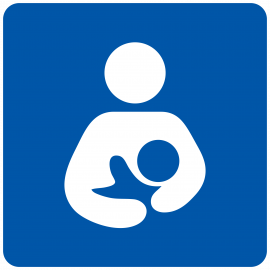
The Department of Health, in collaboration with the World Health Organisation (WHO) and United Nations Children’s Fund (Unicef), is kicking off World Breastfeeding Awareness Week on Thursday.
The department, WHO and Unicef will commemorate this day under the global theme: ‘Closing the gap: Breastfeeding support for all'.
The theme aims to highlight the need to strengthen breastfeeding support to reduce inequalities and forms of discrimination that exist in society, with a special focus on breastfeeding in times of emergencies and crises.
World Breastfeeding Week is celebrated annually from 1 - 7 August to raise awareness about the significance of breastfeeding for the benefit of both the child and the mother.
At the same time, this week aims to encourage families, communities and employers to support breastfeeding mothers by creating an enabling environment for them to feed their babies anywhere, anytime.
“Breastfeeding mothers are often subjected to harassment and other forms of discrimination when they feed their babies in public places,” the department said.
This is why World Breastfeeding Week 2024 will engage people and organisations to promote, protect and support breastfeeding.
The campaign also seeks to galvanise action to reduce inequalities in breastfeeding support by focusing on vulnerable groups.
According to the department, South Africa has made progress in improving the rates of exclusive breastfeeding in children under six months - up to 32% in 2016.
“Exclusive breastfeeding remains a cornerstone of child survival and health because it provides essential, unique nutrition for optimal growth and cognitive development,” the department said.
It also serves as a child’s first immunisation, protecting children from respiratory infections, diarrhoeal disease, and other potentially life-threatening diseases.
On the other hand, the department said that women who breastfeed have a reduced risk of developing chronic diseases such as breast and ovarian cancer, hypertension, and type 2 diabetes.
However, the department believes that the success or failure of breastfeeding should not be seen solely as the responsibility of women, as their ability to breastfeed successfully is shaped by the support and the environment in which they live.
South Africa has since committed to reaching the global Sustainable Development Goal: Nutrition Target of increasing the rate of exclusive breastfeeding in the first six months, up to at least 50% by 2025, despite the latest reported rate of 22.2% from the National Food and Nutrition Security Survey (NFNSS) report 2024. – SAnews.gov.za


